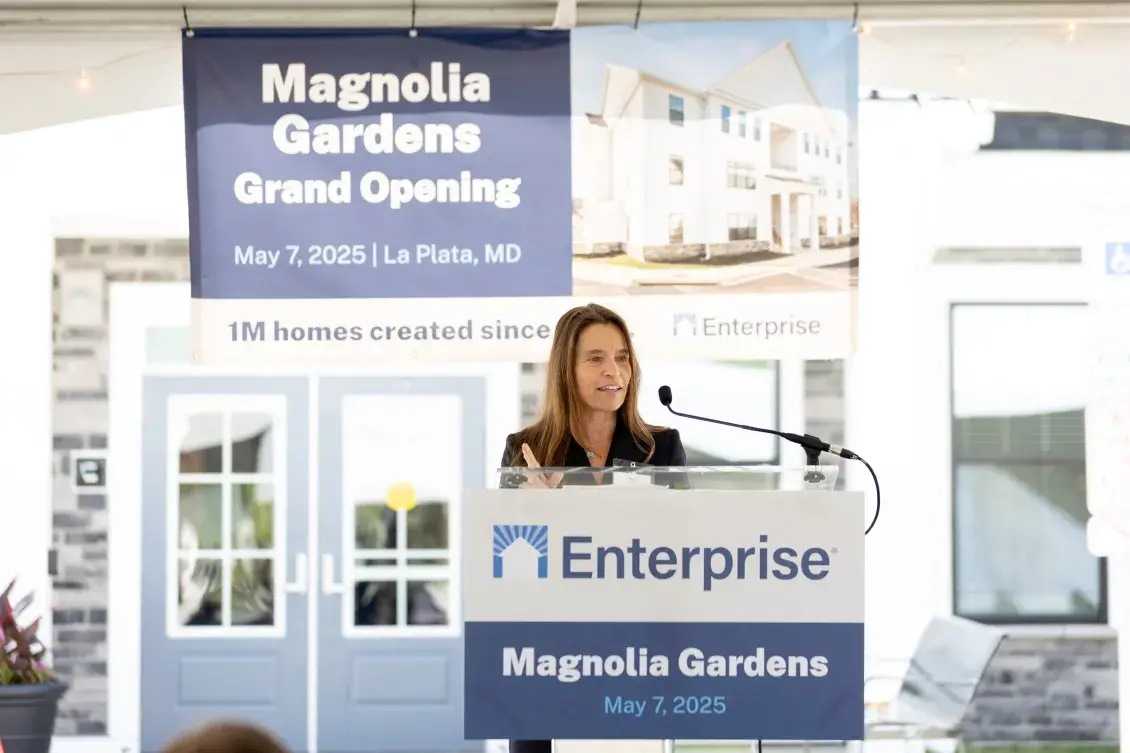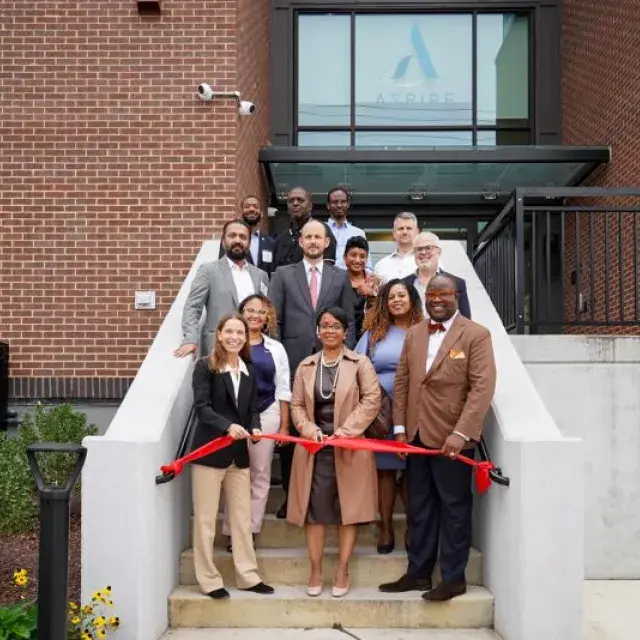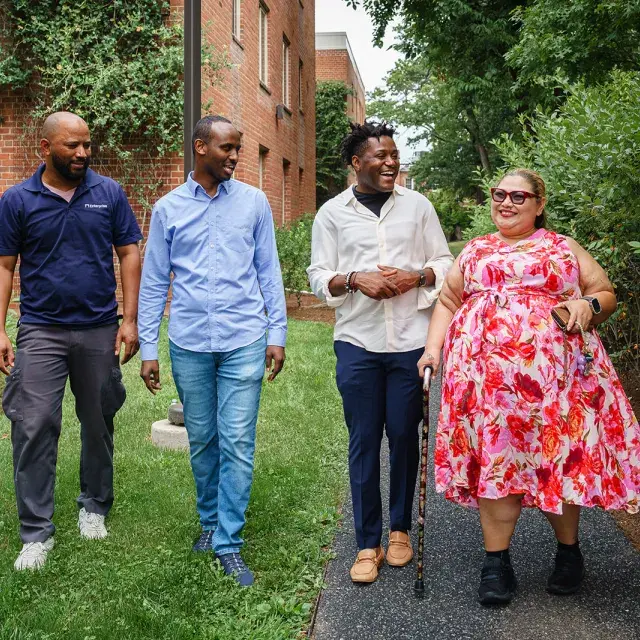After just a few months on the job, Janine Lind put together a five-year plan for Enterprise’s Community Development division. “I was feeling good about this plan,” said Lind, who recently celebrated her one-year anniversary as the division’s president. “And then, starting in February of this year, external changes caused things to go a bit haywire.”
Despite funding headwinds and market uncertainties of the past several months, Lind’s ambitious goal to create 1,700 homes this year remain unchanged. While she and her team are focused on finding new and innovative solutions to current challenges, Lind finds inspiration from property visits, ground breakings and ribbon cuttings, and the people she meets along the way.
Ultimately, it's not only about the numbers or our continued growth — it's the fact that we need more affordable housing for people. And if we can do that for one person at a time, that’s what we’ll do.
We recently sat down with Lind to talk about her outlook for the second half of 2025, unexpected opportunities, and sources of inspiration.
What are your top priorities for 2025 for Enterprise Community Development?
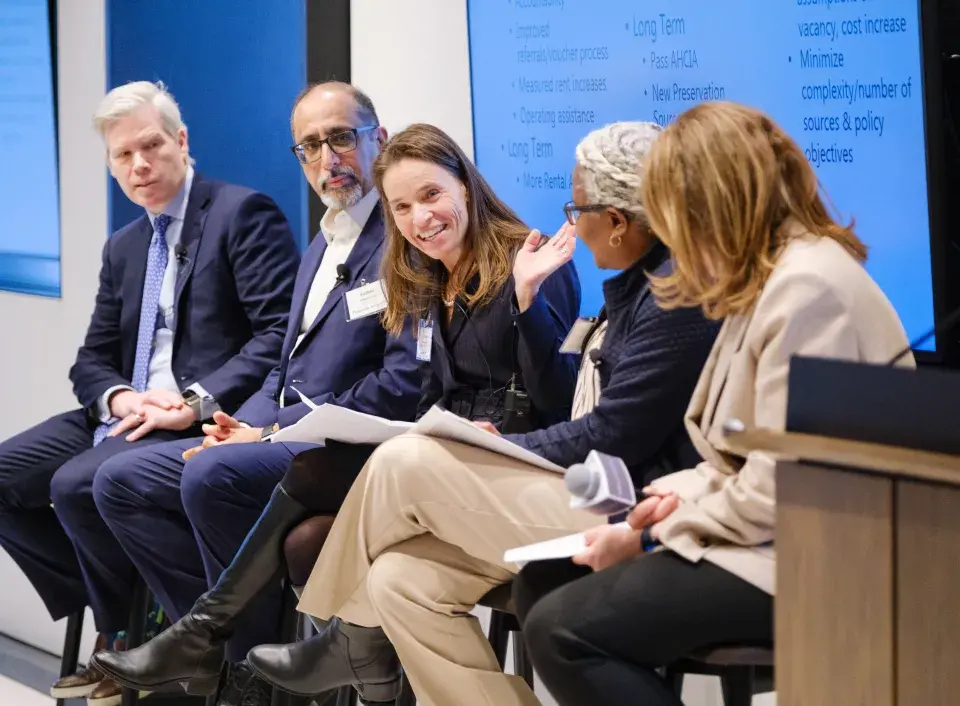
At the end of last year, I was feeling good about a five-year “pathway to sustainability” plan. But even through all the uncertainty and the political headwinds that we face now, our goal remains the same. We aim to have 19 properties under construction — either in progress or we'll commence construction — this year. That’s almost 1,700 new homes in the Mid-Atlantic region, and it’s our priority to get those built.
We look at that every month, and the team is working very hard to solve the challenges and the problems that have come our way with some of the funding sources being frozen — such as the Greenhouse Gas Reduction Fund (GGRF) — and finding a solution to make sure we can still deliver these projects. In addition to that, it’s important that we launch our phase three solar energy work. We spent a whole year building a business model for clean energy that others can replicate.
You mentioned some of the challenges with funding and other curve balls that have come your way. How would you describe the biggest risk that you face right now?
I would say our biggest risk right now is our development pipeline. It’s so dependent on federal funds that we run a risk that we cannot close on all our projects this year or next year. And that would mean we wouldn’t be able to build a thousand units of affordable housing in the Mid-Atlantic. We are working hard to address that, to think about other funding sources, and to find creative and innovative ways to make sure that we can still close them.
Conversely, what about opportunities? You talked about the projects under construction and the potential for so many new homes.
The big question is: can we turn our current challenges into opportunities, especially those related to federal funding? As a nonprofit, we need to think differently about how we fund the development of properties, even if it's hard. When I'm talking to my peers about that, we're so used to tax credits, we layer on some other funding sources, and then we try to get vouchers for subsidies for our residents. We need to start thinking about putting more emphasis on the private side of funding, with some public funding, rather than the reverse.
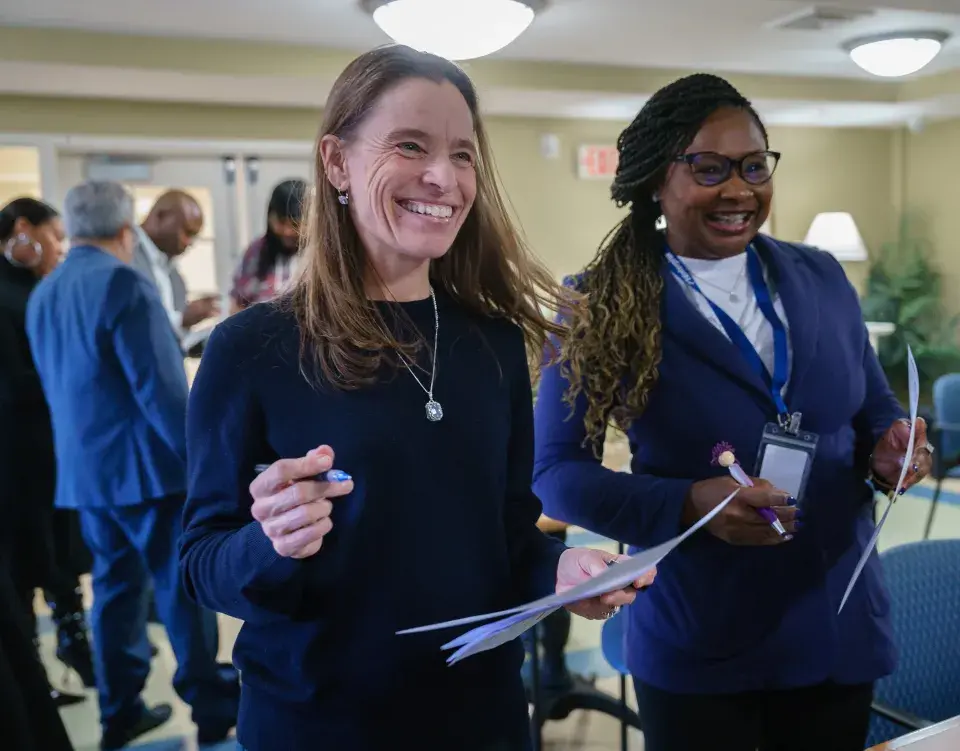
And there have been some recent innovative ways and an increase in interest from private capital. For example, just this morning I heard from my leadership that there have been some discussions with a bank that is interested in funding housing for seniors.
And there are other innovative models to consider. We have a new team member, Zach Marks, who brings valuable experience from his time working for Montgomery County [Maryland] and creating a “housing production fund” to supplement, not replace, their other funding sources for affordable housing. They have been very successful in using that model to build more housing at an affordable cost.
We’ve been talking to the District of Columbia and Virginia about ways to start up a housing production fund in those locations, and I know it’s happening in Denver also. As nonprofits, we need to continually examine new opportunities.
What type of needs are you seeing in your communities in addition to housing?
There are a lot of needs and I’m seeing it more and more – one of those issues is food insecurity. It cropped up during Covid and I think we thought it would go away, but it’s never gone back to pre-Covid levels.
I was at one of our senior properties a week and a half ago for our gratitude tour and at the end of it, we had some leftover sandwiches and salads and some cookies. So, we said to the manager, why don't you just let your residents know? For some, the leftovers can be a week's worth of food versus just grabbing a sandwich for that afternoon. They're either buying less, going hungry, or forgoing medical care because they just can't afford it because their income hasn't kept up with inflation.
At the same time, we’re seeing that food banks are not getting funded. There are also several federally funded programs that are being cut, and that include programs at schools as well for children of low-income and extremely low-income families, which is going to impact families in our communities. It just breaks my heart that in a country this wealthy we have way too many people who can't afford to eat.
What have you come across lately that's been inspiring to you?
I’ve had the good fortune to meet several residents over the past year. Soon after I started this job, I was standing in the parking lot at Oxford Manor in Washington, D.C. and a resident walked up to me and started telling me her story. She had been homeless and struggling to find a permanent place to live and finally found it at Oxford Manor. She had been living in a car before she came to us, and she had written a book that she gave to me – it included some of her history and this quote: “May I live as long as I want and never want as long as I live.”
More recently, I met Cherrydale resident Cleo Walker at my colleague’s retirement party. I didn't know her story until that event, and it really stuck with me. She was integral in convincing Enterprise to buy the community to prevent it from converting to market rate housing, while also being an advocate for safer communities. She's done a lot of community advocacy in Baltimore more broadly —it's incredible how much she has done for Enterprise and for all of us.
We also have these stories within our staff and property management. At a recent huddle with 200 people on Zoom, we had a breakout session where one of our property managers talked about her own lived experience and how glad she is to work for an organization that understands the importance of affordable housing. She lived in affordable housing as a single mom of three kids, and it was for her the foundation that brought her to now, where she's just about to close on her first home purchase.
What inspires you on a personal level?
By nature, I’m a very hopeful person, but honestly, it's been a little hard this year. Lately I’ve gone back to reading Jim Rouse’s speeches and I find myself wishing we had made more progress since he wrote them. I do believe and am committed to making a difference and I try to find inspiration from other people and places. Where I’m from in the Netherlands, no one sleeps on the street at night. In 2023 they had a 0.17% homelessness rate, even if not everyone has a permanent home. And now they are working on a plan to ensure everyone has one of those. The Netherlands is the size of Rhode Island, so why can’t we start with Rhode Island and move from there?
Despite the tumult in our world today, I am focused on being here today, supporting my team, and anyone I interact with. And when I have hard days, I go for a run in the woods and life is good.
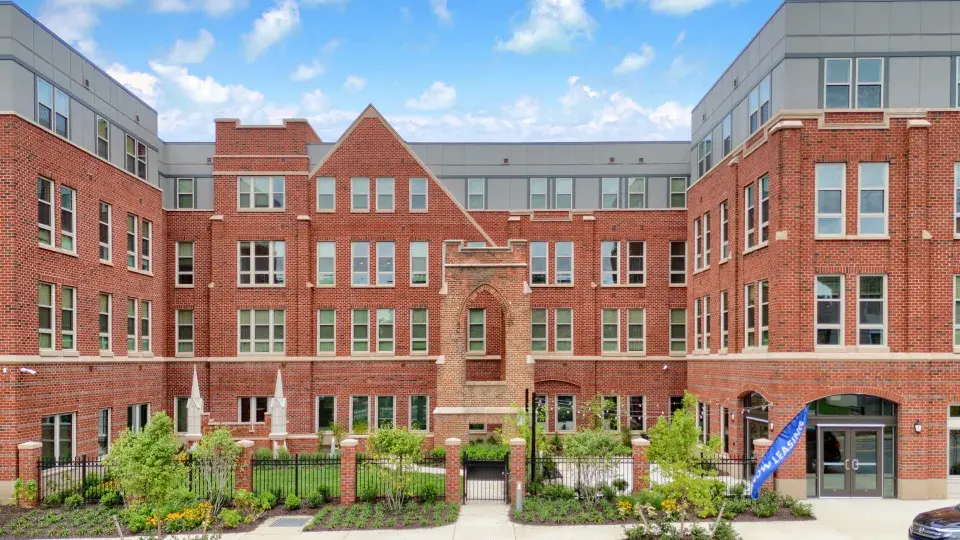
Highland Terrace Apartments in the Highland Park neighborhood of Richmond, VA.
